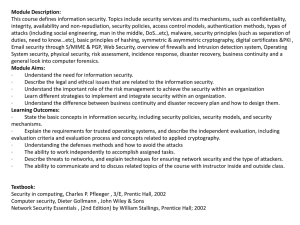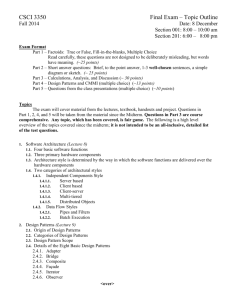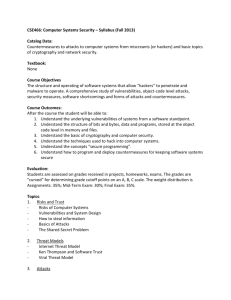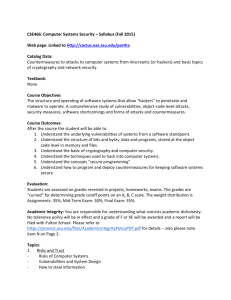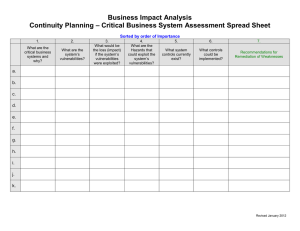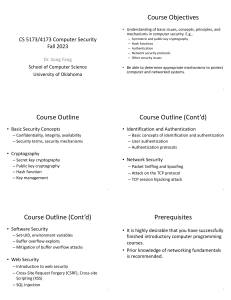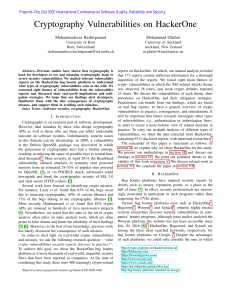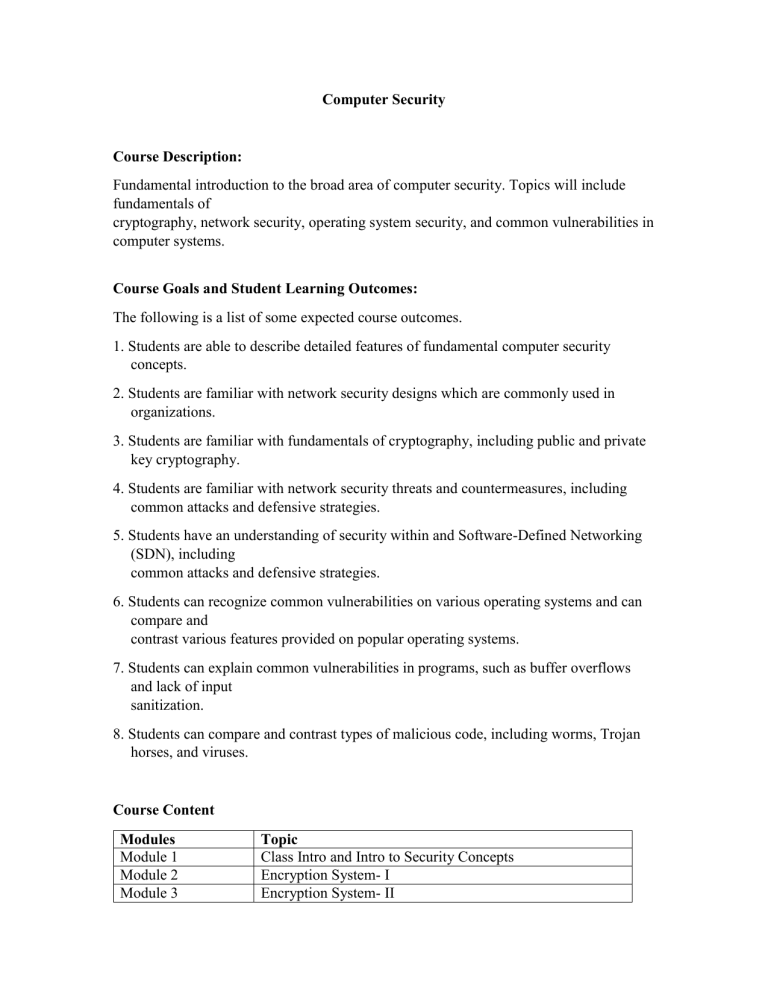
Computer Security Course Description: Fundamental introduction to the broad area of computer security. Topics will include fundamentals of cryptography, network security, operating system security, and common vulnerabilities in computer systems. Course Goals and Student Learning Outcomes: The following is a list of some expected course outcomes. 1. Students are able to describe detailed features of fundamental computer security concepts. 2. Students are familiar with network security designs which are commonly used in organizations. 3. Students are familiar with fundamentals of cryptography, including public and private key cryptography. 4. Students are familiar with network security threats and countermeasures, including common attacks and defensive strategies. 5. Students have an understanding of security within and Software-Defined Networking (SDN), including common attacks and defensive strategies. 6. Students can recognize common vulnerabilities on various operating systems and can compare and contrast various features provided on popular operating systems. 7. Students can explain common vulnerabilities in programs, such as buffer overflows and lack of input sanitization. 8. Students can compare and contrast types of malicious code, including worms, Trojan horses, and viruses. Course Content Modules Module 1 Module 2 Module 3 Topic Class Intro and Intro to Security Concepts Encryption System- I Encryption System- II Module 4 Module 5 Module 6 Module 7 Module 8 Module 9 Module 10 Module 11 Module 12 Module 13 Module 14 1st-Mid. Exam 2nd-Mid. Exam Pre-Exam Dec 4 Threat Models Buffer Overflow attack Buffer Overflow Exploits and Defenses Web Security Securing Web Applications Ur/Web Network Security SSL and HTTPS Side-Channel Attacks Mobile Phone Security Data Tracking Exercises Exercises Review on course Final Exam


